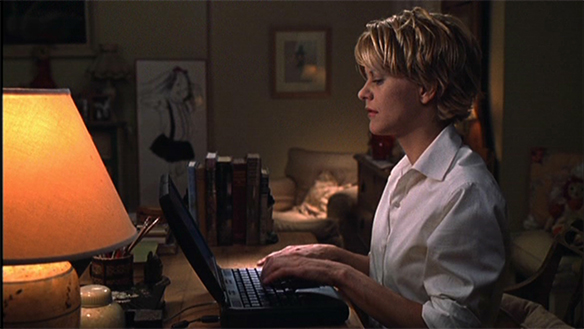
Robert Greene’s Best Advice On How To Create A Classic
Those two pieces of advice have shaped my career as a writer and a producer of books for other people.
By ![]() Ryan Holiday
Ryan Holiday

There are a few people more qualified to give advice about how to create perennial, enduring writing than Robert Greene. His book The 48 Laws of Power has sold millions of copies since it was released nearly 20 years ago, and its sequels 33 Strategies of War, The Art of Seduction and Mastery continue to sell and sell. Even The 50th Law, his collaboration with the rapper 50 Cent, is currently in the top 5,000 on Amazon, 8 years after its release.
And that’s just the superficial evidence of the quality of the books. Robert’s historical style of writing completely upended the concept of what a business book could be, earning him a cult-like following in many non traditional audiences. His books are commonly requested (and banned) in the U.S prison system, top the most shoplifted lists in independent book stores and are popular enough in Russia that their intelligences agencies have a dossier on him. These are books that have carved a niche for themselves and don’t appear to be going anywhere.
All of which are reasons I have made a habit of asking Robert Greene for writing advice in my career. (When I can’t ask him directly, I try to ask myself: What would Robert do in this situation?) I thought I would share two pieces of particularly important advice I got from Robert about the craft of writing and creating great books. Hopefully they will help you as much as they helped me.
The first piece has to do with ambition. The truth is most authors aim shockingly low with their books. They don’t think this is what they’re doing of course. If you asked them what they were trying to do as they sat down to write, they would tell you, “I’m trying to make a New York Times bestseller,” or they would say, “I’m trying to make something that will establish me as an expert.” This seems ambitious—hitting the bestseller lists is an impressive accomplishment, and being an expert can generate lucrative speaking or consulting opportunities.
This is the wrong way to think about it, Robert explained to me. “It has to start,” he told me, “with wanting to create a classic.” Creating a genre defining, timeless classic is the only meaningful goal for a writer. Cyril Connolly would say something similar, “The more books we read, the clearer it becomes that the true function of a writer is to produce a masterpiece and that no other task is of any consequence.”
Look at Robert’s books: The 48 Laws of Power is not designed to be some ordinary business book. It was designed and written to feel like it could have been published in 1680 or 2070. It took Robert nearly a year just to produce the proposal and sample chapters. It is the culmination of a lifetime of study (and painful lessons). When I was Robert’s research assistant on The 50th Law, I watched him toss a nearly completed manuscript in the recycle bin and pivot from a book about hustling (the original concept) to a book about fearlessness. He rewrote the entire thing to get where he wanted to go! Robert began working on the book he’s working on right now in 2013. It’s 2017 and he’s not even two thirds finished.
Robert’s books don’t become classics because they are marketed that way. He writes them as classics. He does all that work upfront. He demands it of himself. His books are masterpieces because it is the most essential task.
While other writers put the cart before the horse, Robert is alone in his study, researching and writing. I’ve tried to take this as my model. I’m not obsessed about how my first week sales are going to be, I’m obsessed about whether I’ve created a book that can last, that I have left no stone unturned in my search for stories and quotes and evidence to bring to the reader. I don’t want to chase fads or trends. I want to root my book in timeless, classic themes. Robert, I’m guessing, would agree with Jeff Bezos’s dictum to “focus on the things that don’t change.” That’s how you make a classic and it is the only true ambition for a writer. Everything else is just icing.
The second piece of advice I got from Robert is partly related to the first. Although Robert’s books tend to be historical, non-fiction works, he is widely read and has helped many other authors in many genres (perhaps most surprisingly, he once wrote the foreword to a book about children’s beauty pageants). He told me that the way to create a classic book, one that will sell year in and year out is simple and binary. “Your book needs to be either very entertaining,” he told me, “or extremely practical.” One or the other. Either solve a problem or provide an escape.
Think of I Hope They Serve Beer in Hell or A Confederacy of Dunces or Shadow Divers or The Tiger or The River of Doubt or Endurance: Shackleton’s Incredible Voyage. These books don’t do anything, but goddamn are they entertaining. You flip through every page laughing or riveted, either way, excited for what comes next. No wonder they sell like crazy. Spouses want to know why the person next to them in bed won’t turn off the light and go to sleep. The seatmate on an airplane asks why you’re laughing so hard. These books sell by word of mouth because they are great.
And this works for more than just books. Think about Max Martin, arguably the most prolific and successful songwriter of all time (more than 22 #1 hits). He’s not necessarily trying to write deep, meaningful music about his own inner life. Instead, he tries to write fun, entertaining songs. And then he subjects them to his infamous car test to see if they really are fun and entertaining: How do they sound driving up the Pacific Coast Highway outside Los Angeles? How do they sound with the top down and the stereo up? His music is there to be an escape, to help people have fun. He does it better than anyone.
Now think about Robert’s books: He refuses to dance around the truth in his books. They are politically incorrect in a way that makes many people uncomfortable, even disturbed. Yet, for this very reason, they are extremely practical. If you suddenly find yourself locked in a federal prison, struggling to make sense of the violent, dangerous politics of the cellblock, which book are you going to pick up? Something published by some academic for the Harvard Business Review or Robert Greene’s amoral guide to the timeless realities of power? (Again, his book is so practical and effective it’s actually banned by some prison authorities).
The point is that far too many writers focus on capitalizing on some trend or positioning a book so it makes them look smart. Or they get caught up on what the project means to them personally, why they are excited about it and their own issues. What they lose with these distractions is the sight of the most essential priority: utility.
My editor said this to me once, “Ryan, it’s not what a book is, it’s what a book does.” That’s what Robert was saying and he was homing in on the two most important jobs a book can do, the two things readers look for most: Entertainment or Instruction. And they don’t want those things in small, ineffective doses. They want as much of it as they can, they want to mainline it from your prose.
Those two pieces of advice have shaped my career as a writer and a producer of books for other people. Even in my latest book, Perennial Seller, which I interviewed Robert for and profiled him in, I had to step back and ask two sets of questions. First: Is this book set up to be a classic? Are my ambitions set high enough? Is there timelessness in this writing? Is it the best book I can possibly write? Second: Have I created a real, practical resource for people (I make no promises about its entertainment value). Is this something people can read again and again and get more out of each time? Is it extremely practical?
At each step of the process, Robert’s advice helped me. It’s helped me on all my books, and I think it’s largely the reason they continue to sell to this date. His other advice has been helpful to me too (for instance, that no one remembers subtitles or that the book proposal is for the publisher and the book is for the author), but it’s these two pieces that have helped me most.
I hope they help you too—and I hope that, as I do, you will start to ask yourself: “What would Robert Greene do?” because there is hardly a better living model out there. ![]()











